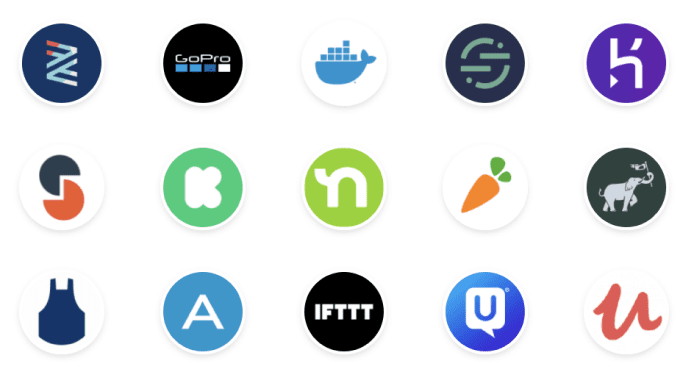Upload to Artifactory

 Cloud Server v3.x Server v2.x
Cloud Server v3.x Server v2.x CircleCI supports uploading directly to Artifactory.
Deploy
Artifactory has great documentation explaining how to leverage their REST API.
We will use this space to highlight some sample projects showing how to best use CircleCI and Artifactory together.
Ensure that you have created your repository before starting this example, otherwise CircleCI won’t have a place to store your dependencies.
Artifactory plugins
Popular tools like Maven and Gradle have Artifactory plugins, and can deploy to Artifactory using their respective deploy commands.
JFrog CLI
If you want to use the JFrog CLI, you can install it by adding the following to your .circleci/config.yml :
- run:
name: Install jFrog CLI
command: curl -fL https://getcli.jfrog.io | sh
Now we need to configure JFrog to use our credentials securely. We configure the client to use our $ARTIFACTORY_URL, along with our $ARTIFACTORY_USER and $ARTIFACTORY_APIKEY. These can be entered under Project Settings->Environment Variables. Configure the CLI to use these settings:
- run: ./jfrog config add <named_server_config> --artifactory-url $ARTIFACTORY_URL --user $ARTIFACTORY_USER --apikey $ARTIFACTORY_APIKEY --interactive=false
If you would like to upload JAR files use the following example:
- run: ./jfrog rt u "multi*/*.jar" <artifactory_repo_name> --build-name=<name_you_give_to_build> --build-number=$CIRCLE_BUILD_NUM --flat=false
If you would like to upload WAR files use the following example:
- run: ./jfrog rt u "multi*/*.war" <artifactory_repo_name> --build-name=<name_you_give_to_build> --build-number=$CIRCLE_BUILD_NUM --flat=false
The full .circleci/config.yml file would look something like the following:
version: 2
jobs:
upload-artifact:
docker:
- image: cimg/openjdk:17.0
auth:
username: mydockerhub-user
password: $DOCKERHUB_PASSWORD # context / project UI env-var reference
working_directory: ~/repo
steps:
- checkout
- run: mvn dependency:go-offline
- run:
name: maven build
command: |
mvn clean install
- run:
name: Install JFrog CLI
command: curl -fL https://getcli.jfrog.io | sh
- run:
name: Push to Artifactory
command: |
./jfrog config add <named_server_config> --artifactory-url $ARTIFACTORY_URL --user $ARTIFACTORY_USER --apikey $ARTIFACTORY_APIKEY --interactive=false
./jfrog rt u <path/to/artifact> <artifactory_repo_name> --build-name=<name_you_give_to_build> --build-number=$CIRCLE_BUILD_NUM
./jfrog rt bce <name_you_give_to_build> $CIRCLE_BUILD_NUM # collects all environment variables on the agent
./jfrog rt bp <name_you_give_to_build> $CIRCLE_BUILD_NUM # attaches ^^ to the build in artifactory
See also
Storing and Accessing Artifacts
Help make this document better
This guide, as well as the rest of our docs, are open source and available on GitHub. We welcome your contributions.
- Suggest an edit to this page (please read the contributing guide first).
- To report a problem in the documentation, or to submit feedback and comments, please open an issue on GitHub.
- CircleCI is always seeking ways to improve your experience with our platform. If you would like to share feedback, please join our research community.
Need support?
Our support engineers are available to help with service issues, billing, or account related questions, and can help troubleshoot build configurations. Contact our support engineers by opening a ticket.
You can also visit our support site to find support articles, community forums, and training resources.

CircleCI Documentation by CircleCI is licensed under a Creative Commons Attribution-NonCommercial-ShareAlike 4.0 International License.



